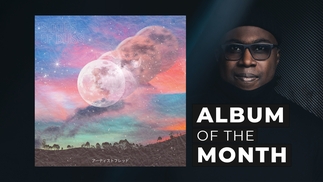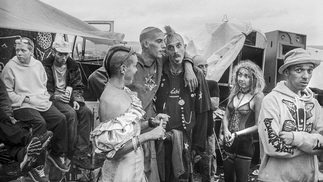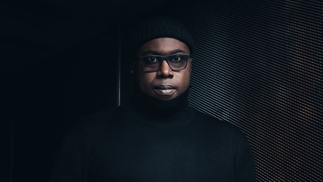STEFFI: KNOWLEDGE IS POWER
Dutch DJ/producer is one of Berlin club Panorama Bar's most celebrated residents. Her deep knowledge of dance music's past keeps her one step ahead of its future, and with her astonishing new mix CD and Dolly record label, she's keeping ahead-of-the-curve...

Programmed and mixed by Steffi, Panorama Bar’s latest mix CD makes it feels like the series is complete. The Dutch DJ/producer’s passion for music is rooted in her deep knowledge of electronic music, which transcends genres and lazy descriptions.
“Some people refer to me as a house DJ, but that’s incorrect; I come from an electro backgrond and when I started off, I was playing electro mixed up with IDM and some Detroit techno, that’s my true background,” she explains.
Raised in Holland, she moved to Berlin in 2007, which coincided with a shift towards the deep, jacking house and sensuous techno that she is more associated with these days. Given her alignment to Dexter and the Klakson label they co-founded, what sparked the move to the German capital?
“When electroclash happened, it was something to look at and think, 'this isn’t anything for me'. That whole '80s revival, that was a trigger for me to play more 4/4. We used to mix up a lot of things back in the day, but in Holland we weren’t so much into minimal house, so it was easy to seek out good quality house and techno,” she explains.
Like this writer, Steffi feels that electro was shamelessly hijacked by those seeking to get rich quick on the back of lame '80s pastiches. She draws parallels between electroclash and the recent hype surrounding deep house.“
Yeah, you can compare it to the deep house hype,” she says. “A lot of music is called deep house just because it has some chords in it (laughs). To me, deep house is Larry Heard and Prescription. I even read an article the other day where someone was saying, ‘Oh yeah, deep house is from Berlin’. Once the mainstream picks up on a style, it doesn’t go well. Deep house and electro both got hijacked, you can say that for sure.”
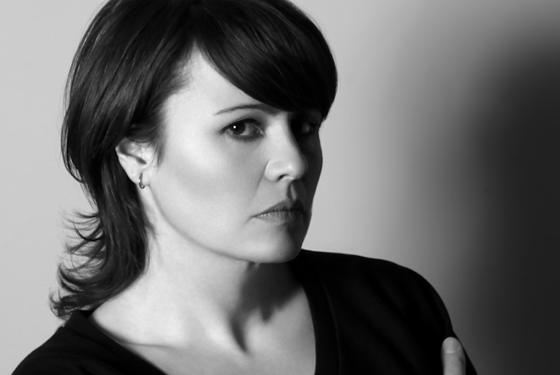
PANORAMA PAST AND PRESENT
Steffi is quick to praise techno, which she believes is “undergoing big changes”. Given that she has lived and worked as a DJ in Berlin for six years, this may not sound surprising, but Steffi’s story is not a typical one of a DJ attracted to the bright lights of the big city to seek fame and fortune.
“I was playing Panorama Bar before I decided to move to Berlin,” she explains. “I got introduced through Andy Baumecker: he approached me about Dexter doing a remix and listened to some of my mixes online. He asked me to play in Robert Johnson [in Frankfurt] and then asked me for a CD,” she recalls. “I did some old disco, Chicago house, some weird contemporary stuff.”
That was 2005, and Steffi played Panorama Bar every few months before the inevitable happened. “In 2007, they asked me if I was moving. It seemed like they were interested because they also offered to represent me on the agency, I didn’t move to Berlin just to be there,” she explains.
The rest is history. Panorama Bar/Berghain has become the most respected underground club in the world, its combination of seemingly random door policy, open-ended hours, formidably talented residents and anything-goes code of behaviour earning it a semi-mythical status. Has it changed much since Steffi took up her residency there, or has it
become a victim of its own success — and can it sustain its appeal?
“When I started there, it was more intimate. I have seen changes and I have had a lot of conversations with people about this, but don’t forget that every five years there is a new generation of clubbers coming up. Also, it is a gay club and the sexuality issue is a big one. Berghain lets a lot of people be themselves. The crowd there shifts all the time, people from different backgrounds and ways of life.There are periods where I say, ‘What is going on?’, but when I was in Australia recently, people came up to me and said there is no place here where we can express ourselves and Berghain allows people to do that.”
Steffi is also adamant that as the club continues to reinvent itself, it will retain its status.
“I would be lying if I said it hasn’t changed, but all the DJs and live acts on our roster are solid, no one has sold their soul.”
She also believes that the internet has played a role in generating hype about Berghain and that this is “unavoidable”. “The technology has developed so fast over the last five years and there is so much information out there. It’s positive because we are such a consuming society,” she feels.
However, Steffi also sees the downside and thinks that in her job, technology has a negative effect. “It doesn’t add a lot to DJing as a profession. If you look at what DJs play now, the quality isn’t there. I still buy my music on vinyl and each one costs 10 euros, but if you spend a few euros on downloads, you might just play them a few times and delete them. I know people who are testing out digital promos in their sets — what the fuck is that about?” she exclaims. “It means that you get someone DJing who has no talent and a lot of DJ sets are very linear, you are listening to the same crap for two hours. Many DJs have missed out a phase of trying new stuff in their living room, getting to know their music,” Steffi believes.
One of the other downsides of technology is dwindling levels of patience, with Steffi noting that “people expect you to play the same set they heard you play on Boiler Room which they have on their iPhone. You want to tell these people to fuck themselves, but if you
did, it would be all over Facebook,” she laughs.

GENUINE CONNECTION
The dominant soundtrack that Berghain/Panorama Bar champions is rooted in classic house and techno. Is it not something of an anomaly that new technology is used to consume old school art?
“The dubstep guys made something new, but a lot of the new genres that have cropped up don’t have the level of quality. It’s because people accept crap and they chuck it in the bin because it only costs a euro. The producers I chose for the mix have that connection to the past, they put a lot of time and energy into their music, they have that depth,” she feels.
It sounds like Steffi also spent a lot of time on the mix. It starts with the deep ambience of Redshape’s Palisade project, before moving into dreamy deep house courtesy of Big Strick and Endian. The spiky drums of BLM's ‘The Nest’ offers a contemporary feeling, while Fred P and Naoki Shinohara provide a middle ground between deep house and techno. From there, it veers into a playful middle, with cut-up, sample-heavy contributions from Juju & Jordash, John Barera & Will Martin and DJ Fett Burger, before the stunning techno finale from DJ Skull, Steve Tang’s Obsolete Music Technology project and Trevino’s
Model 500-inspired 'Juan Two Five'. Throughout, Steffi’s flawless mixing and programming prevail, adding an extra layer of depth to the warm electronic soundtrack.
The mix came about when Ostgut asked Steffi to record a second artist album, but she didn’t feel ready. Instead, she has given us a mix that lays bare her musical DNA, and each track on the mix came through her existing personal connections to the artists.
“These artists are part of my family, almost every act on the CD is a personal connection or one I have established a connection with, like Big Strick or Trevino. It was too early for me to do another album, but this is something that I can look back at, it’s a moment in time,” she explains. “Ostgut didn’t put restrictions on me, the only thing they said was if I wanted to license old stuff, it would take longer — so the only '90s track was DJ Skull, pitched down to minus 6,” she says, adding that “there was so much music to choose from, I had an open door”.
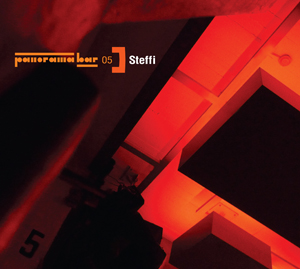
Given the deluge of free mixes online, does Steffi not feel that the mix CD format is a redundant one?
“Totally, and I really appreciate that Ostgut did this. It’s nice for fans of mine and the club, but I wouldn’t be surprised if it is already downloadable,” she points out.
The same technology means that like other underground labels, Steffi’s Dolly imprint has a window of just a few weeks to sell a release. Despite this, she refuses to bombard her peers with digital promos because “it makes no difference to sales”. Instead, she spends her time more productively, forging links with like-minded artists. “In the past three years since I started Dolly, I have made connections with people who may not make the same music, but have the same mentality; everyone who has released on the label, I have approached,” she explains. One of Dolly’s most impressive moves to date has been signing Detroit producer Brooks Mosher.
“He’s one of those artists who could do a lot, lot more because he’s so talented and I hope to do an album with him,” she says. “He only had one release in the '90s, but the guy from the label that released it finally pops up at a gig that I’m doing. It’s the same with Steve Tang [Obsolete Music Technology]. I’m a huge fan and he’s a really nice dude — I’ve been jamming all his music in my sets. I’d rather connect to talented producers than throwing about MP3 promos like confetti,” Steffi adds. It’s an approach that others would do well to heed.

